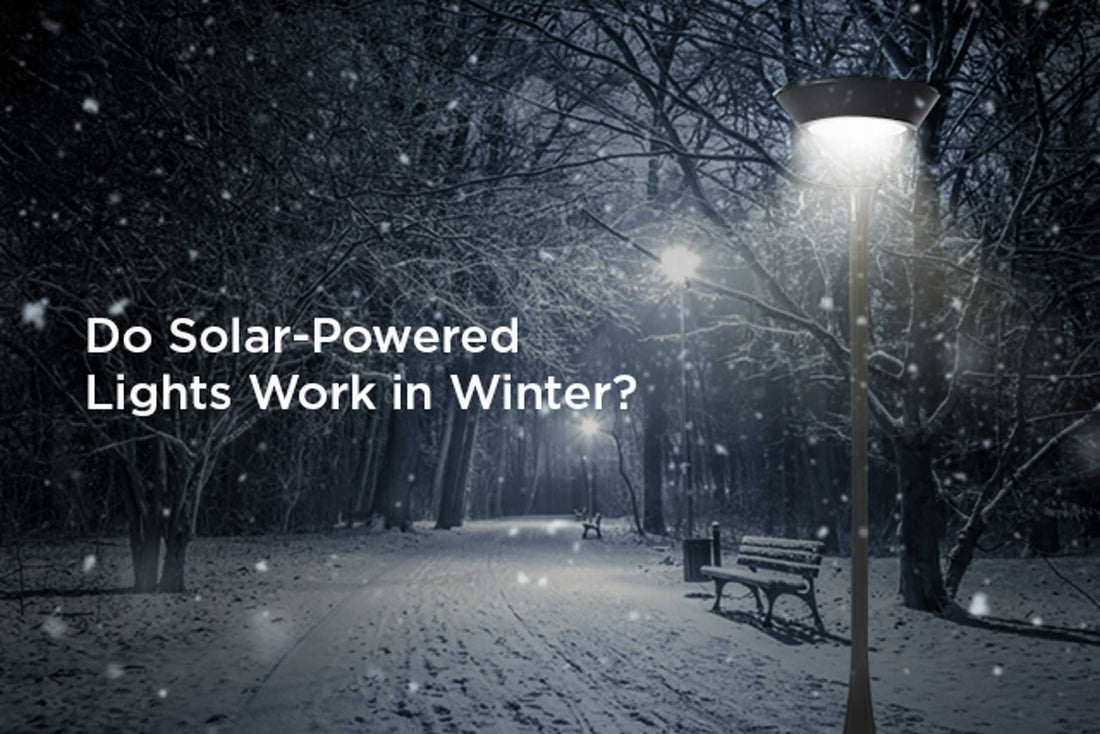
Do Solar Powered Lights Work in Winter? | Facts You Must Know
As winter approaches, businesses are becoming increasingly worried about the surge in energy costs due to the declining temperatures. Consequently, solar power has gained immense popularity, with many companies opting for solar-powered security lights. However, a common query we receive at Beyond Solar, is whether solar-powered security lights are functional during winter.
Fundamentals of Solar Lighting
To begin with, let's discuss the fundamental concepts of solar power, also referred to as photovoltaics. The technology involves harnessing the sun's rays to accumulate energy. This energy is subsequently transformed into electricity and transmitted to different types of devices, including security lighting for commercial establishments.
Does Cold Temperature Affect the Solar-Powered Lighting Batteries?
Batteries are engineered to function optimally within a specific temperature range. However, colder temperatures can affect both the amount of power they can store and the duration they can sustain a reliable source of light.
Solar lighting fixtures frequently use advanced lithium-ion batteries that exhibit exceptional efficiency. However, their efficacy may deteriorate when temperatures plummet below freezing.
Sun’s Position
When the earth tilts away from the sun during autumn and winter, solar rays hit the earth at an oblique angle, resulting in colder temperatures. This change in the position of the sun can also affect the performance of solar-powered lights.
However, if the lights are positioned correctly, they can still work in winter. It may be necessary to adjust the placement or angle of the lights to avoid shadows caused by the lower position of the sun. Fortunately, modern LED solar security lights are often portable and easy to adjust. Therefore, with proper placement, solar-powered security lights can still function effectively in colder temperatures.
Solar Panel Placement
Throughout the summer and winter months, as the Earth revolves around the sun, the position of the sun during noon also shifts. Even though this shift is minor, it can impact the ability of your solar light fixture to absorb enough direct sunlight based on its installation location. If the solar panel does not receive direct sunlight, the light will not perform as intended. If you observe a reduction in the light's duration, contemplate relocating the solar light or panel to a spot with improved access to direct sunshine.
Ways To Winter-proof Your Solar Lights
Here are some tips for optimizing the performance of your solar panels during winter:
- Face your panels towards the east or west to maximize electricity generation during the winter months when the sun is lower in the sky.
- Reposition the angle of your panels to 60° to ensure maximum sunshine during winter, returning them to the default angle after the season.
- Avoid shadows by relocating your panels if necessary to improve performance.
- Clean your panels regularly to remove dust and grime that can block the limited winter sunlight and reduce efficiency.
How To Store Solar Lights?
Following are some of the ways of storing solar Lights:
- To store and shelter your solar lamp or solar lamp post, turn off the light and disassemble it properly.
- Store it in a dry place like a garage, basement, or utility shed.
- If the lamp head contains glass, wrap the solar light with bubble wrap or spare blankets to prevent breaking or cracks in the glass.
- If you plan to store the solar light for 2-3 months, remove the batteries.
- When you are ready to use the solar light again, wipe down any dust that may have gathered during storage with a damp cloth (avoid using chemical products on the solar panel).
Frequently Asked Questions about Solar Lights in Winter
1. Do solar powered lights work in winter?
Yes, solar lights can still work in winter. They may not charge as fully because of shorter daylight hours, but with proper placement and maintenance, they provide reliable lighting even in cold and snowy conditions.
2. Do solar lights charge on cloudy or snowy days?
Solar lights still charge on cloudy or snowy days, though at a reduced efficiency. High-quality panels are designed to capture diffuse sunlight, so they can store enough energy to power your lights at night.
3. How can I improve the performance of solar lights during winter?
You can improve efficiency by keeping solar panels clean from snow and dirt, placing them in areas with maximum sunlight, and using high-capacity rechargeable batteries.
4. Can freezing temperatures damage solar lights?
Most modern solar lights are built to withstand freezing temperatures. However, extreme cold can reduce battery performance. Storing lights indoors during very harsh weather can extend their lifespan.
We offer solar panels in varying sizes and for specific uses. Head over to our solar panel and installation section to find the applications best suited to your requirements.
